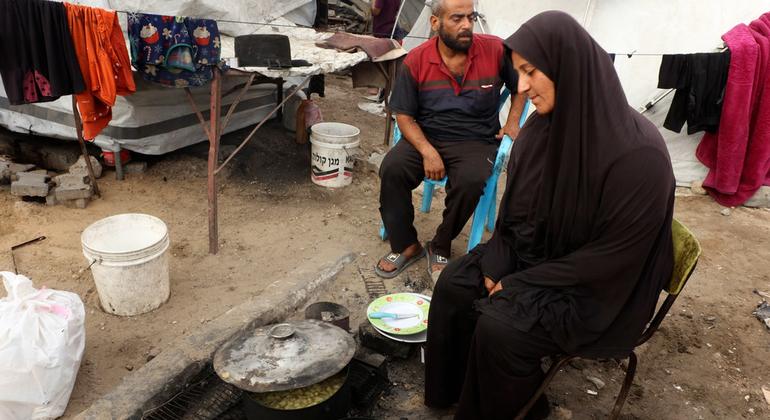One month after the ceasefire, the situation in Gaza is still marked by a severe food crisis. Despite the efforts of the World Food Programme (WFP), only 20,000 tons of food have been sent, which is half of what is needed to meet the population’s needs. Restrictions at border crossings, with only two open in the south, complicate the arrival of aid to the northern area, where convoys face significant logistical challenges.
Abeer Etefa, a spokesperson for the WFP, highlighted the urgency of the situation: “Winter is approaching and people continue to suffer from hunger. The needs are overwhelming. We have taken some steps, but not enough.” With prices unattainable for most, the population can only access a limited variety of foods, such as grains and legumes, while meat, eggs, vegetables, and fruits are practically a luxury.
Moreover, the fuel shortage has led more than 60% of the population, who lack gas for cooking, to use burnt waste to prepare their meals. This practice increases health risks, a problem that worsens with the arrival of the cold, while the needs for shelter intensify. Many who have managed to return to their homes find their residences in ruins, while the displaced in the south survive in very precarious conditions, often in tents.
A touching testimony is from Manar, a mother of four children, who is in a girls’ school now turned into a shelter. “Reality hit me even harder after the ceasefire because I became homeless. We lost our house, our belongings, our clothes, our food; everything was inside the house. Now we are below zero. Winter is coming. I look at my children and remember how they used to have warm pajamas and blankets. Now they have nothing. None of our basic needs are being met,” she recounted with deep sadness.
On the international front, the UN Secretary-General announced that members of the Security Council are in discussions about a draft proposed by the United States to establish an international force in Gaza. This initiative could have a significant impact on efforts to improve the humanitarian situation in the region.
Referrer: MiMub in Spanish
